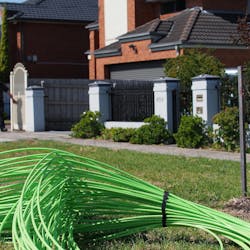According to the FCC's draft 2019 Broadband Deployment Report, the digital divide between Americans with and without access to modern broadband networks has narrowed substantially.
"For the past two years, closing the digital divide has been the FCC's top priority," said FCC Chairman Ajit Pai. "We've been tackling this problem by removing barriers to infrastructure investment, promoting competition, and providing efficient, effective support for rural broadband expansion through our Connect America Fund."
"This report shows that our approach is working. But we won't rest until all Americans can have access to broadband and the 21st century opportunities it provides to communities everywhere."
The draft of the annual FCC report to Congress indicates that since last year's report, the number of Americans lacking access to a fixed broadband connection meeting the FCC's benchmark speed of 25 Mbps/3 Mbps has dropped by more than 25%, from 26.1 million Americans at the end of 2016 to 19.4 million at the end of 2017. Moreover, the majority of those gaining access to such high-speed connections, approximately 5.6 million, live in rural America, where broadband deployment has traditionally lagged.
The private sector has responded to FCC reforms by deploying fiber to 5.9 million new homes in 2018, the largest number ever recorded. And overall, capital expenditures by broadband providers increased in 2017, reversing declines that occurred in both 2015 and 2016.
Other findings, based on data through the end of 2017, indicate:
- The number of Americans with access to 100 Mbps/10 Mpbs fixed broadband increased by nearly 20%, from 244.3 million to 290.9 million.
- The number of Americans with access to 250 Mbps/50 Mbps fixed broadband grew by more than 45%, to 205.2 million, and the number of rural Americans with access to such service more than doubled.
Based on these and other data, the report concludes that advanced broadband is being deployed on a reasonable and timely basis. The Commission is expected to vote on the report in the coming weeks.




